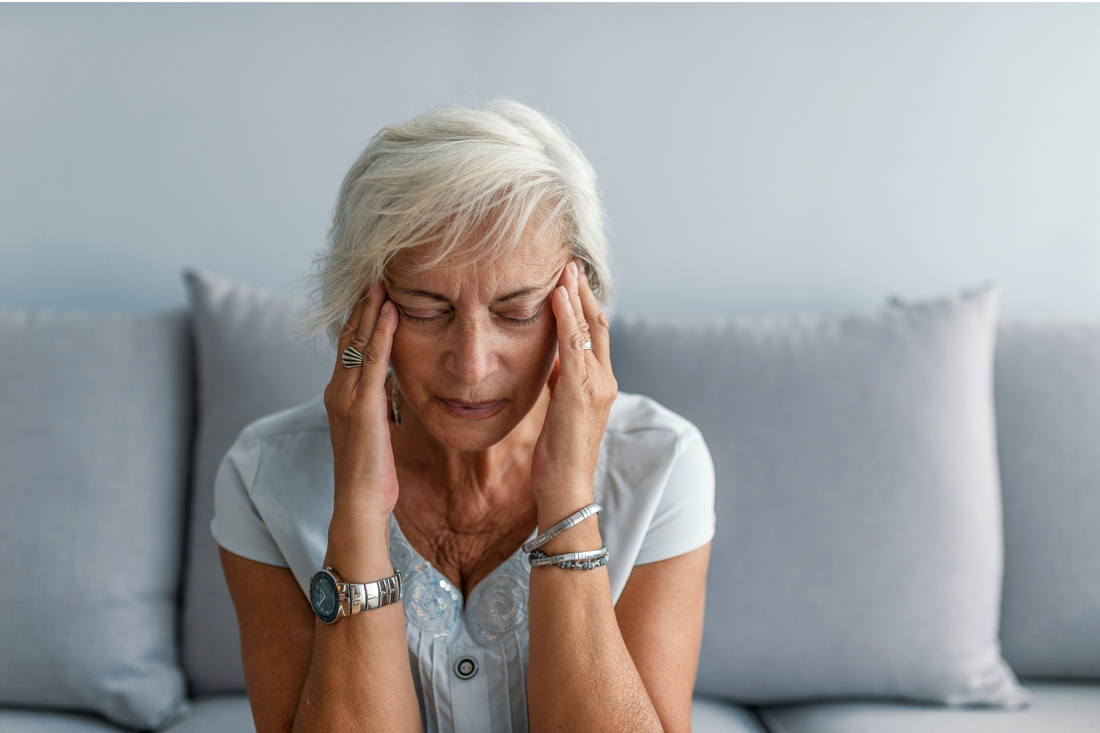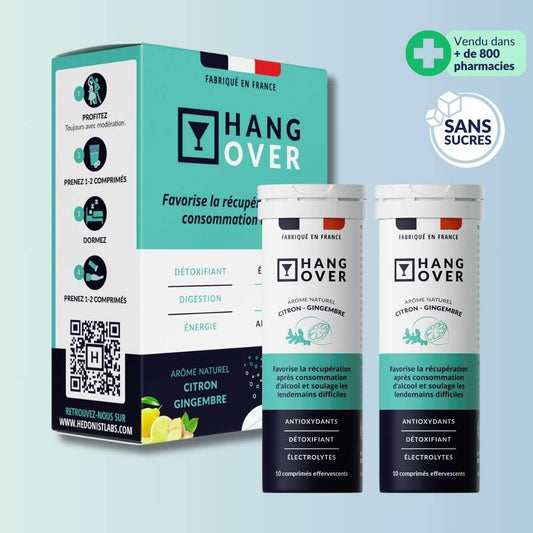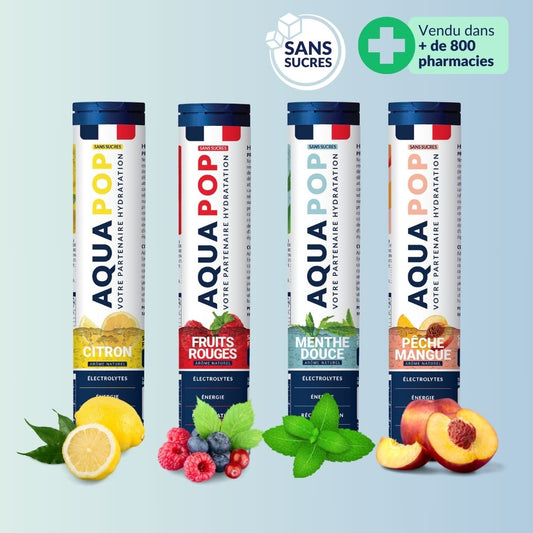- - fatigue
- - back and neck pain
- - headaches.
- - hypersensitivity to light and noise
- - intense thirst
What's more, alcohol's diuretic effect, which inhibits the secretion of antidiuretic hormone, further mobilizes the body's water reserves.
Restoring water and mineral metabolism is essential.
Don't wait until you're thirsty, then it'll be too late.
Electrolytes
To meet the body's needs, HANG-OVER contains an electrolyte-based rehydration solution (Chloride, Potassium, Sodium).
The role of electrolytes is to combat the cellular dehydration recorded after alcohol intake. The body possesses a wide variety of electrolytes: Sodium, Potassium, Calcium, Bicarbonate, Magnesium, Chlorine and Phosphate. Each electrolyte serves a specific purpose: sodium, for example, regulates water movement in the body.
Alcohol consumption induces an imbalance in these electrolytes. Electrolytes are mobilized to eliminate ethanol's toxic metabolites. What has been consumed must be reabsorbed to restore vital fluid balance.
Acute alcohol intoxication is a common reason for admission to hospital emergency departments. In order to best assess the patient's needs, a blood test is performed to identify which electrolytes have been affected. Excessive water elimination is at the root of the disturbance in the biological balance, as our electrolytes are eliminated in the urine.[2,3]
À it has been observed that when alcohol is consumed, magnesium levels in the blood to increase - which is why HANG-OVER contains no magnesium.
Oral rehydration therefore appears to be indispensable in the management of hyperosmolar dehydration. Electrolyte concentration must comply with recommendations for pathological dehydration. We have therefore based our composition on WHO recommendations.
Ginger
The ginger has interesting anti-inflammatory properties in the management of migraines induced by veisalgia. One study shows that taking standardized ginger powder at a dose of 500-600 mg, 3 to 4 times a day, every 4 hours, can relieve a migraine[4].
Restoring electrolyte balance and ginger's anti-inflammatory action will help reduce headaches.
[1]Irwin C, Leveritt M, Shum D, Desbrow B. The effects of dehydration, moderate alcohol consumption, and rehydration on cognitive functions. Alcohol. 2013 May;47(3):203-13. doi: 10.1016/j.alcohol.2012.12.016. Epub 2013 Jan 23. PMID: 23352231.
[2] Joannidis M, Cantley L (2000) Kidney and electrolyte disturbances, chap 19. In: Zernig G, Saria A, Kurz M, O'Malley SS (eds) Handbook of alcoholism. Boca Raton, Fla, CRC Press, pp 209-224.
[3] Ragland G (1990) Electrolyte abnormalities in the alcoholic patient. Emerg Med Clin North Am 8: 761-773
[4] Mustafa T, Srivastava KC. Ginger (Zingiber officinale) in migraine headache. J Ethnopharmacol. 1990;29:267-73




